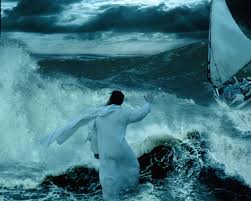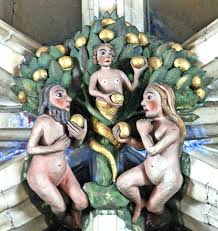Immediately he made his disciples get into the boat and go on ahead to the other side, to Bethsaida, while he dismissed the crowd. After saying farewell to them, he went up on the mountain to pray. When evening came, the boat was out on the lake, and he was alone on the land. When he saw that they were straining at the oars against an adverse wind, he came towards them early in the morning walking on the lake. He intended to pass them by. But when they saw him walking on the lake, they thought it was a ghost and cried out; for they all saw him and were terrified. But immediately he spoke to them and said, 'Take heart, it is I; do not be afraid.' Then he got into the boat with them and the wind ceased. And they were utterly astounded, for they did not understand about the loaves, but their hearts were hardened. (From: Mark 6:45 - 52, NRSV)
Back in the nineteen eighties I had my one and only article for The Guardian's Saturday Face to Faith column published. At the time the editor was Walter Schwartz. It was my interpretation of this story; one of the most powerful stories in the most powerful of the Gospels. Mark's Gospel shows us the relationship between Jesus and the disciples as tense and confrontational. It comes to a head in this story and all I can say here is, walking on water is the least remarkable thing about this story.
One question: why is the miracle of the loaves so important to understand this story? Note how this story links with the Matthew selection in this series . Jesus there refuses to make bread from stones but later, makes bread from bread. He refuses to use miracles to control people, but when confronted by people wishing to make him king he feeds them in order to avoid the obligation they wish to press upon him. Consequently, he is able to walk on water. Easy. Hmmm ...











Recent Comments